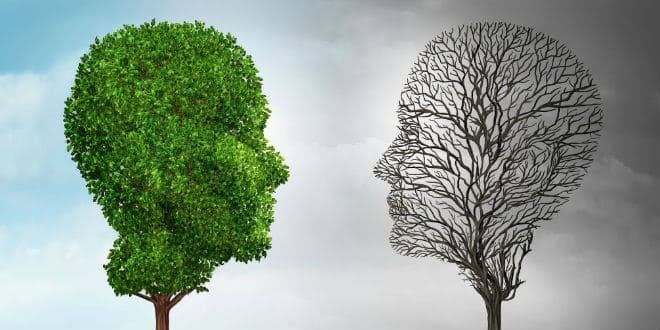● Channawar, S. (2023). Mindfulness Practices for Stress Reduction and Mental Clarity. International Journal of Futuristic Innovation in Arts, Humanities and Management (IJFIAHM), 2(3), 49-59. https://www.researchgate.net/profile/Sonali-Channawar/publication/379034613_Mindfulness_Practices_for_Stress_Reduction_and_Mental_Clarity/links/65f72c5a286738732d59e16a/Mindfulness-Practices-for-Stress-Reduction-and-Mental-Clarity.pdf
● Fury, S. (2024). Active mind maintenance: Tools and tips for improving cognitive thinking. SF Nonfiction Books. https://books.google.com.ph/books?hl=en&lr=&id=3pbuEAAAQBAJ&oi=fnd&pg=PT6&dq=Engage+in+activities+that+stimulate+your+brain+Activities+like+puzzles,+reading,+or+learning+a+new+skill+can+help+keep+your+mind+sharp.&ots=QsYdg1Ed1z&sig=j8RuUvGZ1IE1nuMXYo5tLQVFB6k&redir_esc=y#v=onepage&q&f=false
● NANDA International. (2021). NANDA Nursing Diagnoses: Definitions and Classification, 16th Edition.+
● Ruggeri, S. Y., Emerson, A., & Russell, C. L. (2023). A concept analysis of routines for improving health behaviors. International Journal of Nursing Sciences, 10(3), 277-287. https://doi.org/10.1016/j.ijnss.2023.06.004
● Abd-Alrazaq, A., Alhuwail, D., Al-Jafar, E., Ahmed, A., Shuweihdi, F., Reagu, S. M., & Househ, M. (2022). The effectiveness of serious games in improving memory among older adults with cognitive impairment: systematic review and meta-analysis. JMIR Serious Games, 10(3), e35202. https://doi.org/10.2196/35202
● Ramirez, C., Alayine, G. A., Akafia, C. S. K., Adichie, K., Watts, D., Galdamez, Y., Harding, L., & Allsop, A. S. (2025). Music mindfulness acutely modulates autonomic activity and improves psychological state in anxiety and depression. Frontiers in Neuroscience, 19. https://doi.org/10.3389/fnins.2025.1554156
● Swart, J., & Janeke, C. (2022). Investigating the influence of expressive writing exercises on the working memory of middle adolescents and young adults in South Africa. South African Journal of Psychology, 52(2), 172–184. https://doi.org/10.1177/00812463211043450
● Ferguson, L., Sain, D., Kürüm, E., Strickland-Hughes, C. M., Rebok, G. W., & Wu, R. (2023). One-year cognitive outcomes from a multiple real-world skill learning intervention with older adults. Aging & Mental Health, 27(11), 2134–2143. https://doi.org/10.1080/13607863.2023.2197847
● Zainal, N. H., & Newman, M. G. (2023). Mindfulness enhances cognitive functioning: a meta-analysis of 111 randomized controlled trials. Health Psychology Review, 18(2), 369–395. https://doi.org/10.1080/17437199.2023.2248222
● Fisher, J., & Budson, A. E. (2025, April 2). Tips to leverage neuroplasticity to maintain cognitive fitness as you age. Harvard Health Publishing. Retrieved from https://www.health.harvard.edu/mind-and-mood/tips-to-leverage-neuroplasticity-to-maintain-cognitive-fitness-as-you-age
● Lee, J., Kim, J., & Valdivia, D. S. (2024). A longitudinal analysis of the relationship between different levels of cognitively stimulating leisure activity and cognitive function among older adults with mild cognitive impairment. Journal of Cognitive Enhancement. https://doi.org/10.1007/s41465-024-00293-2
● Bohn, K. (2021). Socializing may improve older adults' cognitive function in daily life. PennState. https://www.psu.edu/news/research/story/socializing-may-improve-older-adults-cognitive-function-daily-life?utm_
● Tamminga, S. J., Emal, L. M., Boschman, J. S., Levasseur, A., Thota, A., Ruotsalainen, J. H., Schelvis, R. M., Nieuwenhuijsen, K., & Van Der Molen, H. F. (2023). Individual-level interventions for reducing occupational stress in healthcare workers. Cochrane Library, 2023(5). https://doi.org/10.1002/14651858.cd002892.pub6
● Verve Behavioral Health IOP. (2024, June 4). How to Deal with Stress at Work | Verve Behavioral Health. Verve Behavioral Health IOP. https://vervebh.com/how-to-deal-with-stress-at-work/?utm
● Michaelsen, M. M., Graser, J., Onescheit, M., Tuma, M. P., Werdecker, L., Pieper, D., & Esch, T. (2023). Mindfulness-Based and Mindfulness-Informed Interventions at the Workplace: A Systematic Review and Meta-Regression Analysis of RCTs. Mindfulness, 14(6), 1271–1304. https://doi.org/10.1007/s12671-023-02130-7

